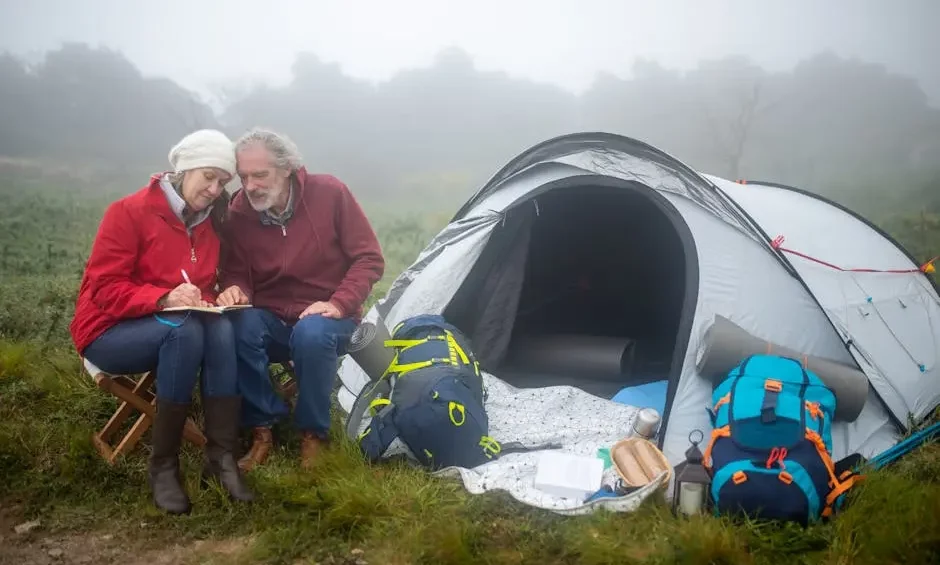Outdoor retreats have gained popularity across various demographics, offering unique experiences that connect individuals with nature. But are these retreats genuinely suitable for people of all age groups? In this blog, we will explore the feasibility, benefits, and considerations for outdoor retreats for different age groups.
Understanding the Diversity of Outdoor Retreats
Outdoor retreats can vary in style, ranging from adventurous hiking expeditions to tranquil yoga retreats. Each type offers distinct activities tailored to different preferences and capabilities, making it crucial to understand the diversity available.
Adventure enthusiasts might prefer retreats that offer thrilling activities like rock climbing or white-water rafting. These dynamic experiences not only enhance physical endurance but also build resilience and teamwork skills among participants. It’s essential to gauge the fitness levels and interests of the participants when planning such activities to ensure their safety and enjoyment.
On the other hand, some retreats focus on mindfulness and relaxation, offering yoga sessions amidst serene landscapes or guided meditation in natural settings. These provide the perfect environment for participants to recharge both mentally and physically. Recognizing the popularity of wellness retreats, many providers now offer a blend of relaxation and gentle outdoor activities, catering to those seeking peace rather than adrenaline.
Benefits of Outdoor Retreats for Children
Outdoor retreats can provide children with essential life skills, nature appreciation, and opportunities for social interaction. However, safety precautions and age-appropriate activities are key considerations.
Outdoor retreats introduce children to the wonders of nature through playful, educational activities. Interactive games that incorporate nature education can fascinate children while promoting learning. Retreats often include scavenger hunts, nature walks, and creative art projects inspired by natural settings—activities that nurture curiosity and appreciation for the environment.
To ensure safety, it’s crucial to provide adequate supervision and choose environments that are age-appropriate. Retreats should include structured yet flexible programs that allow children to explore under the watchful eyes of qualified guides, ensuring both safety and fun. Organizations like Broadmoor Outfitters are dedicated to creating such engaging and safe environments.
Opportunities and Challenges for Teenagers
Outdoor retreats offer teenagers a perfect mix of adventure and self-discovery. While these outings can foster independence and resilience, they must balance excitement with safety measures.
Teenagers are at a pivotal stage of experiencing independence, and outdoor retreats provide the perfect platform for this growth. Retreats designed for teens often include team-building exercises, survival skills workshops, and leadership training, which are beneficial for personal development.
However, it is essential to intertwine exciting activities like hiking or rock climbing with core safety principles. instructors and guides should be experienced in engaging teens, ensuring they not only follow necessary safety protocols but also feel empowered to explore and learn in nature responsibly.
How Adults Can Benefit from Nature Retreats
Adults can find stress relief and personal growth in outdoor retreats. Whether opting for solitude or community engagement, selecting retreats that match an individual’s interests and fitness levels is essential.
With modern lifestyles being increasingly digital, retreats offer a digital detox, providing adults the opportunity to rediscover themselves away from daily distractions. Through activities such as guided hikes, nature photography, or contemplative silence in natural settings, adults can enjoy a restorative break that rejuvenates the mind and body.
For those seeking community engagement, retreats often include group workshops, cooking classes using foraged items, or collaborative art activities. These activities encourage social bonding and can ignite new passions or hobbies, ultimately adding value to their regular lives.
Planning Retreats for Seniors: Key Considerations
For seniors, retreats can promote wellness, relaxation, and social bonding. Organizers must ensure accessible facilities, appropriate activity levels, and health support to accommodate senior participants.
Retreats focused on seniors prioritize comfort and accessibility. Programs are often tailored to include low-impact activities such as guided nature walks, bird watching, or gentle exercises like tai chi, which enhance physical health while refreshing the spirit.
Organizers must consider the unique health needs of seniors, ensuring medical staff or resources are available. Furthermore, offering nutrition-focused cooking classes or healthcare workshops can provide additional value, encouraging a holistic approach to wellbeing. With careful planning, these retreats become not only enjoyable but also enriching experiences for senior participants.
Inclusive Planning: Ensuring Enjoyable Retreats for All Ages
Successful outdoor retreats involve carefully considering the diverse needs of each age group. This includes selecting a variety of activities, customizing itineraries, and ensuring safety to make retreats inclusive and enjoyable for everyone.
To ensure inclusivity, organizers must provide a spectrum of activity options that cater to different interests and capabilities. Retreats may feature customizable schedules; participants can choose between high-energy adventures or relaxing self-care activities like painting, ensuring each individual’s preferences are respected.
Safety is a priority across all demographics. Having a well-prepared team and emergency plans, alongside experienced guides, ensures everyone can enjoy the retreat without concerns. By prioritizing safety and comfort, organizers can facilitate seamless, memorable experiences for participants of all age groups.
Conclusion
Outdoor retreats can be versatile experiences accommodating various age groups when planned thoughtfully. By understanding the needs, interests, and limitations of each demographic, organizers and participants can ensure that the retreat offers enriching experiences for everyone involved. Furthermore, Broadmoor Outfitters is dedicated to providing tailored outdoor adventures that cater to these diverse needs, ensuring everyone can enjoy the beauty of nature safely and joyfully.


